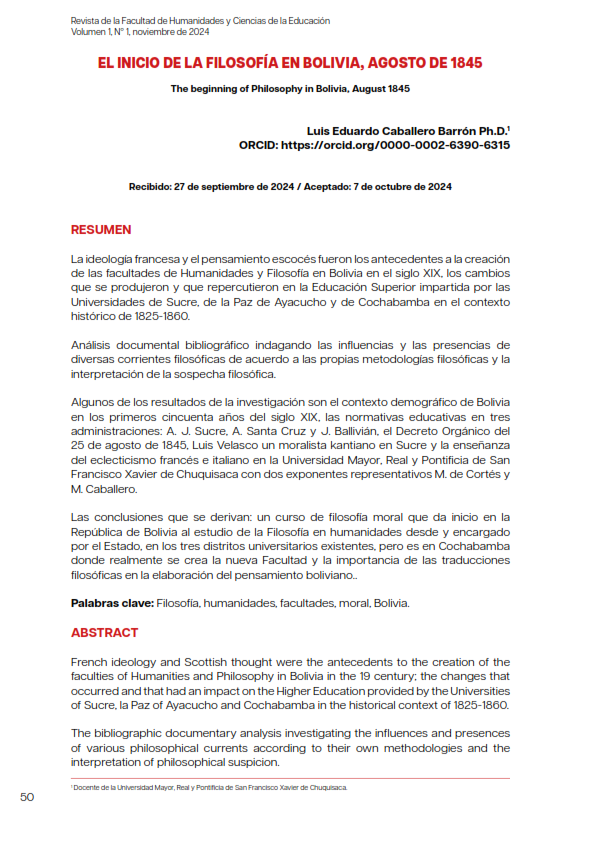EL INICIO DE LA FILOSOFÍA EN BOLIVIA, AGOSTO DE 1845
DOI:
https://doi.org/10.56469/vc.v1i1.1550Palabras clave:
Filosofía, Humanidades, Facultades, Moral, BoliviaResumen
La ideología francesa y el pensamiento escocés fueron los antecedentes a la creación de las facultades de Humanidades y Filosofía en Bolivia en el siglo XIX, los cambios que se produjeron y que repercutieron en la Educación Superior impartida por las Universidades de Sucre, de la Paz de Ayacucho y de Cochabamba en el contexto histórico de 1825-1860. Análisis documental bibliográfico indagando las influencias y las presencias de diversas corrientes filosóficas de acuerdo a las propias metodologías filosóficas y la interpretación de la sospecha filosófica. Algunos de los resultados de la investigación son el contexto demográfico de Bolivia en los primeros cincuenta años del siglo XIX, las normativas educativas en tres administraciones: A. J. Sucre, A. Santa Cruz y J. Ballivián, el Decreto Orgánico del 25 de agosto de 1845, Luis Velasco un moralista kantiano en Sucre y la enseñanza del eclecticismo francés e italiano en la Universidad Mayor, Real y Pontificia de San Francisco Xavier de Chuquisaca con dos exponentes representativos M. de Cortés y M. Caballero. Las conclusiones que se derivan: un curso de filosofía moral que da inicio en la República de Bolivia al estudio de la Filosofía en humanidades desde y encargado por el Estado, en los tres distritos universitarios existentes, pero es en Cochabamba donde realmente se crea la nueva Facultad y la importancia de las traducciones filosóficas en la elaboración del pensamiento boliviano..

Descargas
Publicado
Versiones
- 2025-04-03 (3)
- 2024-12-18 (2)
- 2024-11-12 (1)

